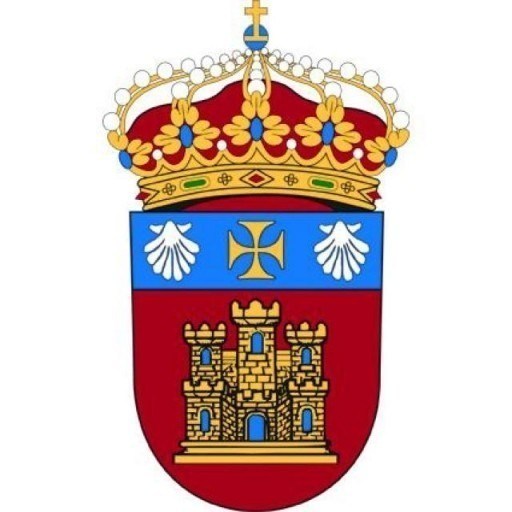Photos of university / #uabbarcelona
The Bachelor’s Degree in Enterprise Law at the Autonomous University of Barcelona offers students an comprehensive understanding of the legal frameworks governing businesses and commercial activities. This program is designed to equip future legal professionals with the skills necessary to interpret, analyze, and apply laws related to entrepreneurship, corporate governance, commercial transactions, and contractual obligations. Throughout the course, students will explore various areas of business law, including corporate structure, mergers and acquisitions, intellectual property rights, competition law, and international trade regulations. The curriculum combines theoretical foundations with practical case studies, fostering critical thinking and problem-solving abilities essential for advising companies or working within legal departments.
Students will have the opportunity to learn from experts in the field of enterprise law through lectures, seminars, and workshops, gaining insights into the evolving legal landscape impacting businesses in Spain and beyond. The program emphasizes the importance of ethical considerations and social responsibility in business practices, preparing graduates to contribute responsibly to economic growth and legal compliance. In addition to core legal subjects, the program offers optional courses in areas such as environmental law, data protection, and digital commerce, reflecting current trends and future challenges faced by enterprises worldwide.
The Autonomous University of Barcelona provides a supportive academic environment with state-of-the-art facilities, access to legal databases, and practical training through internships and collaboration with law firms and business organizations. Graduates of this program will be well prepared to pursue careers as legal advisors, corporate lawyers, compliance officers, or to continue their studies in specialized postgraduate programs. By combining rigorous academic training with practical experience, the Bachelor’s Degree in Enterprise Law aims to develop versatile professionals capable of navigating complex legal issues and contributing to the development of a fair, transparent, and efficient commercial environment.
The Enterprise Law degree program at the Autonomous University of Barcelona is designed to provide students with a comprehensive understanding of the legal framework governing business activities and corporate operations. This program equips future professionals with the necessary legal knowledge to navigate complex legal environments, advise businesses on compliance issues, and participate actively in corporate decision-making processes. Throughout the course, students explore a wide range of topics, including commercial law, company law, contract law, bankruptcy law, intellectual property, and competition law. Emphasis is placed on the practical application of legal principles, with case studies, moot courts, and internships integrated into the curriculum to enhance experiential learning.
The program aims to develop skills in critical analysis, negotiation, and legal drafting, enabling graduates to work effectively in legal consultancy firms, corporate legal departments, or government agencies. Students also learn about international legal standards and how they influence national laws, preparing them for careers in multinational companies or international organizations. The curriculum fosters an understanding of the ethical and social responsibilities of legal professionals working within the business sector. Additionally, the program emphasizes the importance of digital transformation and innovation in law, ensuring students are prepared for the evolving legal landscape driven by technology.
The degree is offered in a full-time format, usually spanning four academic years, with opportunities for specialization in areas such as corporate law, commercial arbitration, or compliance. Students benefit from the university’s strong links with local businesses and law firms, providing valuable networking opportunities and practical experience. Graduates of the Enterprise Law program are well-positioned to pursue careers as legal advisors, corporate counsel, or entrepreneurs, contributing to the development of a transparent and fair business environment. The program’s comprehensive approach aims to produce highly skilled legal professionals capable of addressing the diverse legal challenges faced by modern enterprises.
Program requirements for the Degree in Enterprise Law at Autonomous University of Barcelona typically include completing core law courses such as Introduction to Business Law, Commercial Law, Corporate Law, Contract Law, and Tax Law. Students are also expected to undertake specialized modules related to enterprise law, including regulations governing companies, mergers and acquisitions, insolvency, intellectual property rights relevant to businesses, and competition law. Practical skills are emphasized through participation in moot court competitions, legal clinics, and internships with law firms or corporate legal departments. Proficiency in legal research and analysis using specialized databases is required, often demonstrated through coursework and projects.
In addition to coursework, students must complete a certain number of credit hours through seminars, workshops, and elective courses offered by the university's law faculty. Language requirements may include proficiency in English or other languages pertinent to international commerce, depending on the program's international focus. To graduate, students are generally required to submit a final thesis or capstone project related to enterprise law, demonstrating their ability to analyze legal issues in commercial contexts critically. Throughout the program, ethical considerations, professional responsibility, and current legal developments are integrated into the curriculum, ensuring graduates are prepared for practical legal roles in business environments.
Students also need to meet certain academic performance standards, such as maintaining a minimum grade point average (GPA) and passing comprehensive exams or assessments at various stages of their studies. The programme may stipulate participation in extracurricular activities that enhance understanding of enterprise law practice. Collaboration with legal institutions and participation in conferences or symposiums may be encouraged or required to foster professional development. International mobility programs or exchanges could be offered in partnership with universities abroad, providing exposure to different legal systems. Overall, the program aims to equip students with the theoretical knowledge, practical skills, and ethical outlook necessary for a successful career in enterprise law and related fields.
The financing studies for the Enterprise Law program at the Autonomous University of Barcelona entail a comprehensive overview of the financial aspects related to the pursuit of this degree. Tuition fees for the program are structured according to the regulations established by the university and are subject to annual adjustments. Generally, the costs are determined by the number of credits and the specific regulations applicable for undergraduate studies in law. For international and national students, tuition fees may vary, with potential distinctions in scholarships, grants, and financial aid packages available through the university or external funding bodies.
The Autonomous University of Barcelona offers multiple financing options to facilitate students’ access to higher education. These include scholarships for academic excellence, grants based on economic needs, and participation in work-study programs that allow students to work part-time while studying. Additionally, students can benefit from bank loans designed specifically for university expenses, which often include favorable conditions and deferred payment options to ease financial burdens during the course period.
The university also collaborates with public and private entities to provide internship opportunities that can serve as a means of financial support and practical experience, increasing employability prospects upon graduation. In some cases, students may access funding through European Union programs or other international organizations supporting education.
Furthermore, students are encouraged to consult the university’s financial aid department for tailored advice and assistance in applying for grants, scholarships, and loans. Overall, the aim of these financial studies is to ensure that interested candidates are fully aware of the costs involved and the available resources to support their studies, thus promoting access to legal education at the Autonomous University of Barcelona.
The Bachelor's Degree in Enterprise Law at the Autonomous University of Barcelona is designed to provide students with a comprehensive understanding of the legal principles that govern commercial activities and enterprise operations. The program equips students with essential legal knowledge related to business organizations, commercial contracts, corporate governance, insolvency proceedings, and the regulation of commercial transactions. Throughout the course, students are introduced to international and European Union regulations affecting businesses, which prepares them to operate effectively within the globalized marketplace.
The curriculum emphasizes both theoretical foundations and practical skills, including legal analysis, critical thinking, negotiation, and drafting. Students have the opportunity to study modules on company law, conflict resolution, intellectual property rights, consumer protection, and labor law, all pertinent to enterprise functioning. The program also fosters an understanding of ethical considerations and social responsibility in business law, encouraging future legal professionals to uphold integrity and sustainable practices.
The degree typically combines lectures, seminars, case studies, and internships, allowing students to integrate their academic knowledge with real-world experience. The university maintains strong links with local and international law firms, corporate entities, and regulatory agencies, providing students with internship opportunities and networking platforms.
Graduates of this program are prepared to pursue careers in legal consultancy for businesses, corporate legal departments, governmental agencies, or continue their studies in specialized legal fields or postgraduate programs. The university also offers support services, including career counseling, to assist students in achieving their professional goals. The program’s multidisciplinary approach ensures graduates are well-versed in legal principles, economic concepts, and regulatory frameworks, making them valuable assets in various sectors of the economy.









